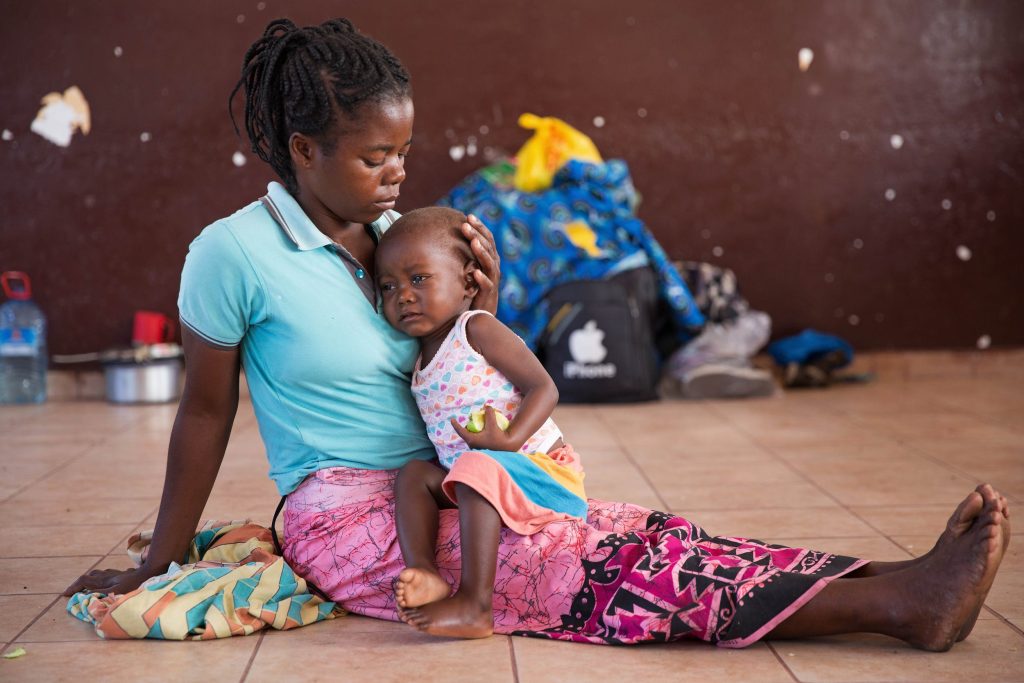In an historic announcement, the World well being group (WHO) in the present day helpful widespread immunization of youngsters throughout sub-Saharan Africa and elsewhere with the world’s first vaccine in opposition to malaria to advance past pilot and testing phases. Sub-Saharan Africa is residence to greater than ninety % of malaria deaths worldwide, with many areas of common to extreme transmission. the advice is predicated on outcomes from an ongoing WHO-coordinated pilot program of the RTS,S vaccine in Ghana, Kenya, and Malawi that has reached greater than 800,000 youngsters since 2019.
“This prolonged-awaited malaria vaccine is a breakthrough for science, little one well being and malaria administration,” acknowledged WHO Director-primary Dr. Tedros Adhanom Ghebreyesus in in the present day’s press briefing. “using this vaccine collectively with current devices to cease malaria might save tens of hundreds of youthful lives yearly.” RTS,S has been confirmed to significantly reduce again life-threatening, extreme malaria amongst youngsters by 30 %.
up to now, the Ministries of well being of Ghana, Kenya, and Malawi have administered 2.three million RTS,S vaccine doses by this pilot program, exhibiting that routine little one immunization companies might even be utilized strategically and effectively to ship the malaria vaccine. The pilot demonstrated the vaccine’s safety and underscored sturdy neighborhood demand. These findings spotlight the potential of including a vaccine to the array of confirmed, current malaria devices which might even be utilized to wrestle this illness and velocity up the tempo of progress in opposition to malaria throughout Africa and past.
“We rejoice the historic milestone of the fundamental-ever helpful vaccine for malaria. This promising new computer software to shield youngsters, who’re most susceptible to malaria, should complement current, value-efficient, confirmed interventions like mosquito nets, indoor residual spraying, fever testing, and malaria remedy,” acknowledged Margaret Reilly McDonnell, authorities director of the United Nations basis’s Nothing however Nets advertising and marketing campaign. “improvements like this, coupled with elevated political will, funding, and dedication transfer us nearer to a malaria-free world.”
Malaria preys closely on susceptible, marginalized populations, collectively with youngsters beneath 5, pregnant women, indigenous of us, refugees, and displaced people. regardless of appreciable progress with greater use of insecticide-dealt with mattress nets, indoor residual spraying, and the adoption of extremely efficient cures, malaria stays a fundamental killer of youngsters in sub-Saharan Africa. greater than 260,000 African youngsters die from malaria yearly.
whereas malaria deaths have been reduce in half since 2000, this advice—based mostly on the advice of WHO’s worldwide advisory our bodies for immunization and malaria—comes at a time when progress in opposition to malaria has stalled or reversed in some areas.
Malaria continues to be each a set off and affect of poverty and inequality. WHO and companions have referred to as for mannequin new devices, collectively with malaria vaccines, to assist get malaria administration efforts again on observe, enhance little one well being, and save lives. Layering the malaria vaccine with fully different extremely efficient prevention devices, similar to mosquito nets, indoor residual spraying, and wider neighborhood case administration can enhance equity in entry to malaria prevention and assist us attain these which might even be being left behind.
information from Chileka well being Centre in Lilongwe, Malawi, the place the RTS,S pilot passed off, signifies a decrease in hospital admissions for malaria sickness amongst youngsters beneath 5 as a consequence of the vaccine was launched. well being staff say this drop might even be consequently of malaria vaccine, which has additionally improved the routine immunization uptake. earlier than the pilot, most mothers would cease clinic visits when their youngsters acquired their final jab of measles at 15 months. The malaria vaccine has prolonged the immunization interval to 22 months for the RTS,S fourth dose, permitting progress monitoring and primary well being checks at these visits, which assist detect preventable well being threats in youthful youngsters.

Clara Magalasi, who lives in a rural village shut to Lilongwe, the capital metropolis of Malawi, walked 4 kilometers to Chileka well being center to take her 22-month-outdated daughter Grace Butawo for her fourth and final dose of the RTS,S malaria vaccine.
“I understand that if my little one will get all 4 doses, the vaccine will give her basically the most safety in opposition to malaria and extreme malaria. Ever since Grace was born, she has by no means suffered from malaria, not like my fully different youngsters who expert a quantity of malaria episodes as quickly as they have been the identical age as Grace,” acknowledged Clara.
Malaria elimination requires a mix of complementary progressive devices and approaches tailored to native contexts to maintain away from a one-dimension suits all method. This breakthrough is constructed on greater than 30 years of evaluation and enchancment by technical companions with the collaboration of in-nation and worldwide companions.
the subsequent step is for nations with extreme prices of malaria to decide to undertake the vaccine as an ingredient of their nationwide malaria administration purposes, and for worldwide well being funding our bodies to imagine about how they might financially assist these efforts. each might even be key to discover the final mile of the malaria wrestle.
This weblog put up additionally seems on Nothing however Nets.
Featured photograph: James Oatway/ UNICEF

